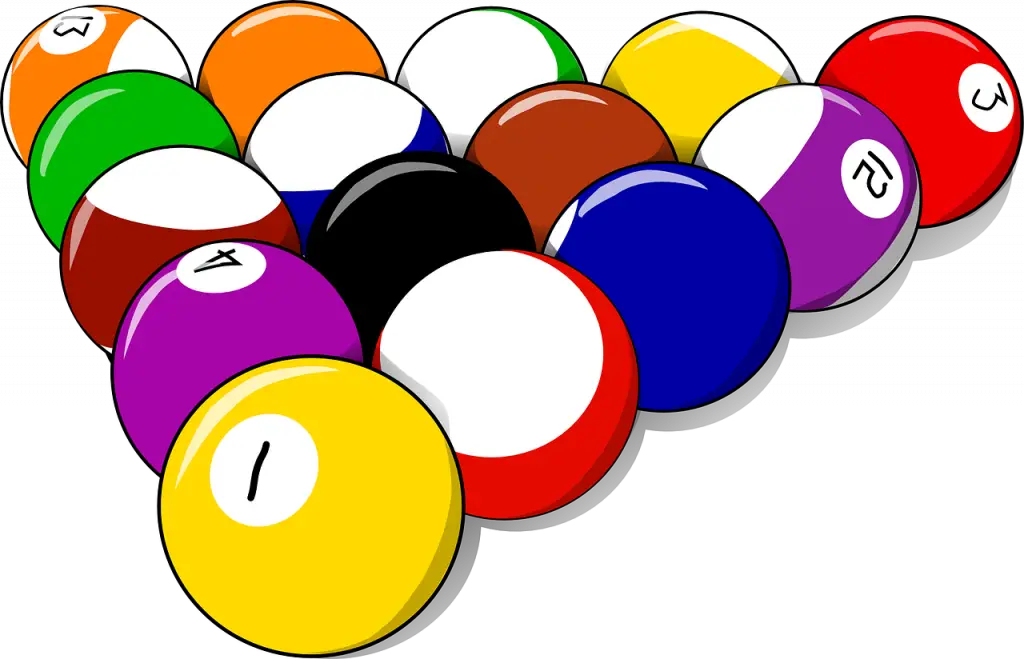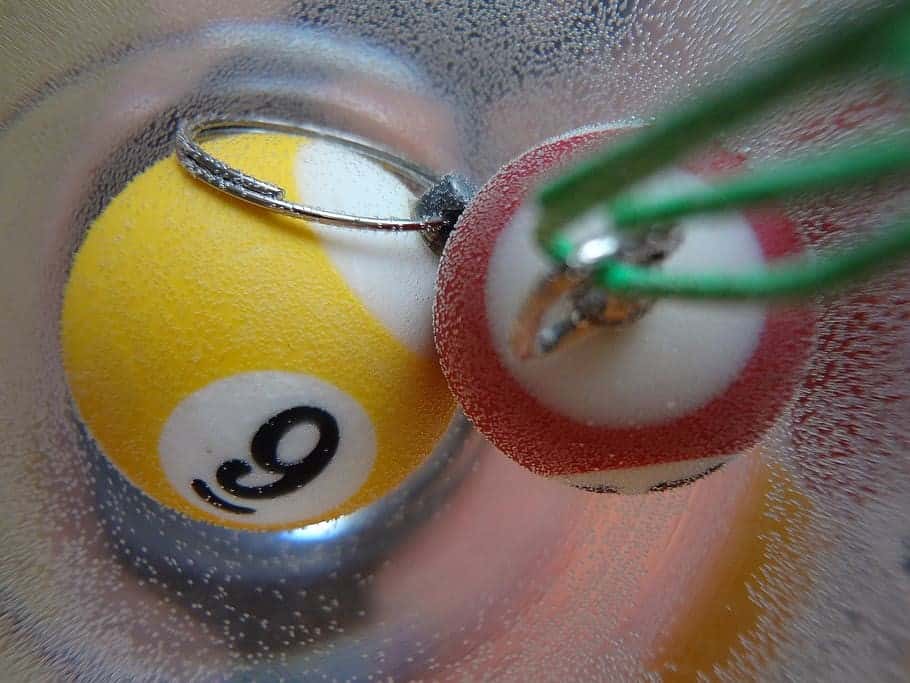How To Clean Pool Balls: A Comprehensive Guide For Billiards Enthusiasts
Billiards is a game that demands precision, skill, and well-maintained equipment. One of the most overlooked aspects of maintaining your billiards setup is how to clean pool balls properly. Over time, pool balls can accumulate dirt, oils, and scratches that affect their performance. Cleaning them regularly ensures smoother gameplay and extends their lifespan.
Whether you're a casual player or a professional, understanding the importance of cleaning pool balls is crucial. Neglecting this maintenance step can lead to uneven rolls, inaccurate shots, and even damage to the pool table surface. By following the right techniques, you can keep your pool balls in excellent condition.
This guide will walk you through everything you need to know about how to clean pool balls effectively. From understanding the materials used in pool balls to implementing cleaning routines, we've got you covered. Let's dive in!
- Hd Movies 4u Hub Your Ultimate Destination For Highquality Films
- Hd Hub 4u Your Ultimate Destination For Highquality Movie Downloads
Table of Contents
- Why Cleaning Pool Balls is Important
- Understanding Pool Ball Materials
- Essential Tools for Cleaning Pool Balls
- Step-by-Step Methods to Clean Pool Balls
- Preventive Measures for Pool Ball Maintenance
- How Often Should You Clean Pool Balls?
- Common Mistakes to Avoid
- Additional Tips for Pool Ball Care
- Frequently Asked Questions About Cleaning Pool Balls
- Conclusion: Keep Your Game in Top Shape
Why Cleaning Pool Balls is Important
Pool balls are subjected to constant use, which can lead to the accumulation of dirt, sweat, and oils from players' hands. Over time, this buildup can cause the balls to become dull, scratched, or even misshapen, affecting their performance on the table. Regular cleaning helps maintain the clarity, shine, and functionality of the balls, ensuring they roll smoothly and accurately.
Cleaning pool balls also plays a role in preserving the quality of your pool table. Dirty or damaged balls can scratch the table's surface, leading to costly repairs. By keeping your equipment well-maintained, you can enjoy a better gaming experience and prolong the life of your billiards setup.
Understanding Pool Ball Materials
Before diving into the cleaning process, it's essential to understand the materials used in pool balls. Most modern pool balls are made from phenolic resin, a durable and scratch-resistant material. Phenolic resin balls are known for their longevity and resistance to chipping. Older balls, however, may be made from materials like ivory or celluloid, which require different care.
- Download Telugu Movies 2025 A Comprehensive Guide To Movierulz
- 2025 Movies Download The Ultimate Guide To Streaming And Downloading Future Films
Types of Pool Balls and Their Maintenance Needs
- Phenolic Resin Balls: These are the most common and require regular cleaning with mild soap and water.
- Ivory Balls: Historically used but now rare, ivory balls need specialized cleaning methods to avoid cracking.
- Celluloid Balls: Though less common today, these balls are highly flammable and should be cleaned with care.
Essential Tools for Cleaning Pool Balls
To clean pool balls effectively, you'll need a few basic tools and supplies. These items are readily available and can make the cleaning process easier and more efficient.
- Mild dish soap or specialized pool ball cleaner
- Soft cloths or microfiber towels
- A soft-bristled toothbrush for detailed cleaning
- Warm water
- Isopropyl alcohol (optional, for tough stains)
Investing in a pool ball cleaning kit can also be beneficial, as it often includes all the necessary tools in one package.
Step-by-Step Methods to Clean Pool Balls
Cleaning pool balls is a straightforward process when done correctly. Follow these steps to ensure your balls are spotless and ready for action:
Method 1: Basic Cleaning with Soap and Water
- Gather your materials: mild soap, warm water, and a soft cloth.
- Fill a basin with warm water and add a few drops of soap.
- Gently scrub each ball with the cloth, paying attention to any visible dirt or stains.
- Rinse the balls thoroughly under running water to remove all soap residue.
- Dry the balls completely with a clean towel before returning them to the table.
Method 2: Using Isopropyl Alcohol for Stubborn Stains
- Apply a small amount of isopropyl alcohol to a soft cloth.
- Gently rub the stained area in a circular motion.
- Rinse the ball with water and dry it thoroughly.
Preventive Measures for Pool Ball Maintenance
Prevention is key to maintaining clean and well-functioning pool balls. Here are some tips to keep your balls in top condition:
- Encourage players to wash their hands before handling the balls.
- Use chalk sparingly and ensure it doesn't transfer to the balls.
- Regularly inspect the balls for scratches or chips and address them promptly.
- Store the balls in a cool, dry place when not in use.
By incorporating these preventive measures into your routine, you can minimize the need for frequent cleaning and extend the life of your pool balls.
How Often Should You Clean Pool Balls?
The frequency of cleaning depends on how often the balls are used. For casual players, cleaning once a month is usually sufficient. In commercial settings like pool halls, daily or weekly cleaning may be necessary due to higher usage and exposure to dirt and oils.
Regular inspections can help determine when cleaning is needed. Look for signs of dirt buildup, discoloration, or scratches. Addressing these issues promptly ensures optimal performance and longevity.
Common Mistakes to Avoid
While cleaning pool balls may seem simple, there are common mistakes that can damage them. Avoid the following pitfalls:
- Using abrasive cleaners or scrubbers that can scratch the surface.
- Submerging the balls in water for extended periods, which can cause warping.
- Applying excessive force during cleaning, which may lead to chipping.
Sticking to gentle, non-abrasive methods is the safest way to clean pool balls without compromising their quality.
Additional Tips for Pool Ball Care
Here are some additional tips to enhance your pool ball maintenance routine:
- Polish the balls occasionally with a specialized polish to restore their shine.
- Use a ball rack to organize and protect the balls when not in use.
- Regularly inspect the table surface for debris that could damage the balls.
By incorporating these tips into your routine, you can ensure your pool balls remain in pristine condition.
Frequently Asked Questions About Cleaning Pool Balls
Q: Can I use vinegar to clean pool balls?
While vinegar is a natural cleaner, it's not recommended for pool balls as it may dull the surface or cause discoloration. Stick to mild soap or specialized cleaners for best results.
Q: How do I remove deep scratches from pool balls?
Deep scratches may require professional polishing or buffing. Consult a billiards specialist for advice on restoring heavily damaged balls.
Q: Are there eco-friendly cleaners for pool balls?
Yes, several eco-friendly options are available. Look for biodegradable cleaners specifically designed for pool balls to minimize environmental impact.
Conclusion: Keep Your Game in Top Shape
Cleaning pool balls is an essential part of maintaining your billiards setup. By following the methods outlined in this guide, you can ensure your balls remain clean, shiny, and functional. Regular maintenance not only enhances your gameplay but also protects your investment in quality equipment.
We encourage you to share this article with fellow billiards enthusiasts and leave a comment below with your cleaning tips or experiences. For more informative content on billiards and sports equipment, explore our other articles on the site. Let's keep the game rolling!
- How To Safely Download Ullu Web Series Using Legal Platforms
- Hub4u Hd Movies Your Ultimate Guide To Highquality Movie Streaming

How To Clean Pool Balls The Ultimate Guide Lift Your Game

How To Clean Pool Balls? My Pool Cue

How To Clean Pool Balls Homely Baron